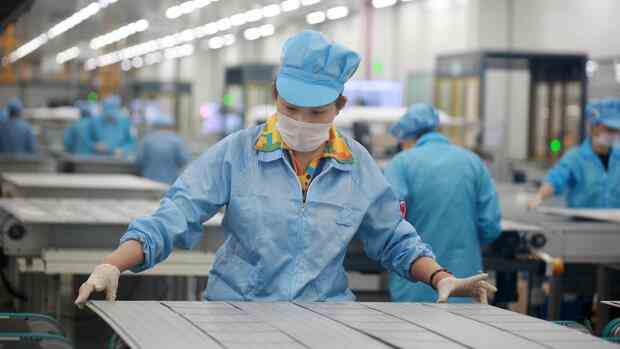Republican Senator Marco Rubio demanded that the US government committee Cifus, which has blocked many foreign investments, investigate the deal immediately. Rubio warned that the Ford-CATL deal would make the US even more dependent on Chinese battery technology. Yet the IRA aims to do exactly the opposite.
In the weekly column we take turns writing about innovation and economic trends in Asia.
(Photo: Klawe Rzeczy)
In Germany, the effect of the IRA on the German and European economy has been the subject of heated debate for months. But the consequences for China are just as exciting, because the program is aimed squarely at the country’s supremacy in solar panels and electric car batteries. Almost three quarters of the global production capacities for electric car batteries are currently in China, with CATL being the world market leader.
>> Read also: Europe and the USA in the race for battery factories
Ford argues that the deal now puts the technology in the United States, where the automaker can control it. This is better than the import before. If the construct for the blueprint and General Motors or Tesla follow, it would be a possibility for the Chinese battery producers to stay in business in the USA.
Chinese solar association warns of price drop due to IRA
The IRA will also have decisive consequences for solar companies from China. The industry association recently warned its members that Washington’s attempt to use the IRA to steer global supply chains towards the USA could mean a loss of global market share and tough price competition for photovoltaic producers.
Last year, China led the world in investment in low-carbon energy and technologies such as solar and wind power, electric cars and batteries. According to Bloomberg information, at $546 billion it was around three times as much as in the whole EU and almost four times as much as in the USA. The Biden government wants to attack this dominance with tax incentives.
>> Read about this: “We’re running out of time” – That’s how big the China risk is for the solar industry
Rating agency Standard & Poor’s argues the IRA comes at a time when China really needs overseas markets to shed output built up by overproduction. Greater domestic demand can only partially compensate for this, as can manufacturers switching to other markets via the New Silk Road initiative.
There is still one factory right in the USA: JA Solar, one of the largest Chinese solar module producers, announced in January that it would build a factory in Arizona for around 60 million dollars. This too should benefit from the IRA tax credits.
Political criticism followed. Marco Rubio was “deeply concerned that the American taxpayer is subsidizing China’s solar industry”. Still, JA Solar may not be the last company to take the plunge into the geopolitical lion’s den.
In the Asia Techonomics column, Nicole Bastian, Dana Heide, Sabine Gusbeth, Martin Kölling and Mathias Peer take turns writing weekly about the most exciting technological and economic trends in the world’s most dynamic region.
More: Asia is setting new standards in digital payments – and Germany is watching
